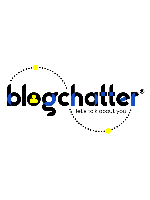If you Google the word, Wikipedia will tell you that neurodiversity is a variation in the human brain regarding sociability, learning, attention, mood and other mental functions in a non-pathological sense. It was coined in 1998 by sociologist Judy Singer, who helped popularize the concept along with journalist Harvey Blume.
What is neurodivergence?
In simpler terms, neurodivergence includes Autism, Asperger’s, ADHD, Dyslexia, OCD, Dyspraxia, and Dysgraphia to name a few. What this means is, someone’s brain processes, learns or behaves in a way that is not considered “typical.”
ADHD happens to be one of the most common types of neurodivergence, and mostly gets diagnosed in childhood and often continues into adulthood. I am not a mental health professional, so I will not get into the technical details, but what I wish to talk about here is living with adult ADHD and balancing a career alongside, something that I have been doing since the past few months.
Adult ADHD is not as uncommon as one might believe. Tragedy is that most adults spend all their lives undiagnosed while their struggles are considered as negative traits of their personality. We shame them, while they themselves spend years unable to understand why they are how they are. Someone who forgets important things is called forgetful and careless. Poor time management skills, difficulty in multi-tasking, problem in focusing - are all attributed to immaturity and being irresponsible.
But getting a proper diagnosis and sharing information can help not only the person but their family members too to find ways in which to manage their needs better.

With a little help from technology
Today we have apps for everything and life as a professional with ADHD has become somewhat easier thanks to them. From reminders, to to-do lists, to planners - ever since I have learnt what is happening inside my brain and how it can be managed, my productivity has increased by 250%, I kid you not. I have reminder apps for work, medicines, water, workout, shopping list, meditations - you name it. Some of the apps I depend heavily on are - Notion for my work, Round for my medication, Podcasts & Spotify to listen to podcasts and stay calm, and Water Tracker to remember to drink water.
With a little help from them, I can ace most of my days. On days that I cannot be productive, I have learnt to let go of my expectations and be kind to myself. The process is ongoing, of understanding personal differences and trying to create a life that is wholesome.
And perhaps, some help from people too?
Over the last two years, it has become more important than ever before to be inclusive and understanding of other people’s situations. With more people working from home, problems have added up even for those without neurodivergence. The general idea today is to be kind to everybody and give a few benefits of doubt if someone doesn’t meet a deadline or asks for more time.
Most people wouldn’t know if someone with neurodivergence is working amongst them, because let’s be honest, who wants to be judged? So even with a diagnosis, people choose to keep it quiet.
The first thing we can do to make people with neurodivergence feel seen and understood is to create a safe environment where they feel safe to share their needs and what can help them deliver their job better. For example, someone may prefer written instructions to oral ones – or vice versa.
People with adult ADHD essentially find focusing on meetings or juggling multiple projects challenging. They could show signs of working memory loss, or slower mental processing. Look out for behaviours like cluttered workspaces, impulsiveness, interpersonal conflict, restlessness, etc. While these aren’t necessarily signs of adult ADHD, there is a good chance that they are.
Once you know what could cause a problem for someone, sit with them and ask how you can help. For instance, somebody might want you to be patient with them, while somebody else might work better if they were reminded of their deliverable once in the middle of the day.
Assign tasks based on their strengths. Give them flexible schedules as much as possible. Try not to bring up their condition in your day-to-day conversations. Remember people with ADHD can and do excel in their works.
A little help and inclusivity from people they work with goes a long way in empowering them and helping them achieving their goals. At the end of the day, all that this world needs is a little more empathy than the day before.
Disclaimer: The apps mentioned in this post are ones I personally use. You may find/use other apps that work for you.
You can read more about inclusivity here.







Comments
I want to share this how do I do it.
Hi @Samarpita: Thanks so much for sharing this story...